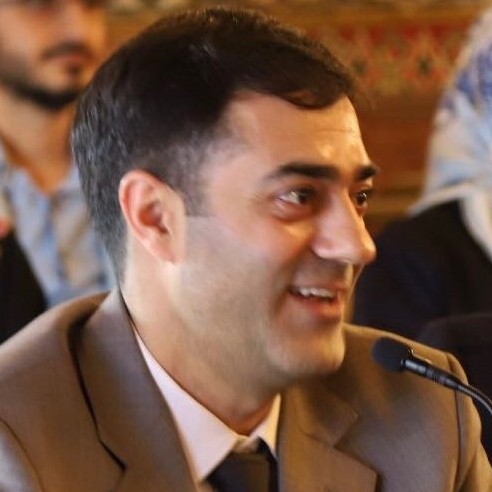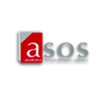Research Article
Aim & Scope
The aim of the Journal of Islamic Economics and Finance (JIEF) is to publish theoretical, empirical and policy-oriented papers that evaluate current and future problems related to Islamic economics, finance, banking, instruments, and regulations from a unique point of view and contribute to the literature.
The journal publishes original articles on Islamic economy, Islamic economic thought and history, Islamic financing and instruments, participation banking and other studies that will contribute to the field of Islamic economics, finance and banking.
All articles that go to the journal goes through the double-blind peer-review process. In order to gain acceptance, all articles submitted to the journal for evaluation must not have been previously published. It is expected that all articles appropriately acknowledge the surrounding literature for the related topics.
Conference proceedings can be published if the situation
is clearly notified.
More information about the journal is available at https://dergipark.org.tr/jief or http://www.izu.edu.tr/isefam/ana-sayfa
Author Guidelines
Title of the article: Title of the manuscript should reflect the content, in Times New Roman, 12 type size, and should be in bold letters.
Abstract: At the beginning, the manuscript should include an abstract both in Turkish and English, briefly and laconically expressing the subject, in maximum 150-200 words. Abstract should be written in 10-point size, 1-line spacing without paragraph indent. Leaving one-line space after the body of abstract, there should be minimum 3 and maximum 8 words keywords. There should be no reference to used sources, figure and chart numbers.
Main Text: Main text should be typed
- In Microsoft Office Word program
- In Times New Roman
- 12 type size,
- 1,5 line on (16x24cm format) paper.
There should be 2.5 cm on the margins and pages should not be numbered. The manuscript should not exceed 10.000 words. Paragraph indent should not be made in the article text and 1 line (12 nk) space should be left between the paragraphs. The subheadings can be used in the article, but headings should not be numbered.
Citations: JIEF journal uses APA 6 version reference format. Manuscripts sent to the journal should be prepared in the reference system, the format of footnotes and bibliography with American Psychological Association (APA) style. You can automatically select APA Sixth Edition from the Applications tab in the Microsoft Office Word program.
References/Bibliography:
The following are examples of quotes and referencing. The rules of the APA 6th version reference format apply for the rules not covered in this manual. Researchers must follow these rules. The bibliography should be placed at the end of the text with 11 point 1-line spacing. All references used in the text should be stated in the bibliography. The works which are not cited in the study must not be included in the bibliography. Papers that are written in Arabic must also include a reference part written in English.
Submission of Manuscripts
The Journal of Islamic Economics and Finance (JIEF) accept manuscripts via DERGİPARK system provided by TÜBİTAK.
1. Manuscripts should be submitted via the Submit a Manuscript system at https://dergipark.org.tr/jief
2. The original nature of the research to be sent to the journal and the fact that it has not been published before and has not been accepted for publication.
3. Conference proceedings can be published if the situation is clearly notified.
4. Information about the authors (name-surname etc.) should not be included in the manuscript
5. If there are more authors, their names should be added to the Add Author section of the second phase of the system.
6. Information about the authors of the article (title, first name, surname, office, institution number and e-mail address) should be sent with a separate file.
7. The JIEF does not publish the articles that provide Copyright Transfer Form.
8. At the beginning of the article there should be an abstract with min 150 - maximum 200 words and, 3 -5 keywords.
9. All articles that goes to the journal goes through the double-blind peer review process.
10. After the article is uploaded to the system, corrections may be requested according to the reports from the referees.
11. After the article is uploaded to the system, the article is considered for publication.
12. All legal responsibility for the articles published in the journal belongs to the authors.
13. Manuscripts which are not accepted for publication shall not be returned to the authors.
Written manuscript prepared in accordance with the JIEF writing principles are accepted on the internet page and pre-admission, field editor review, referee appointment, revision, rejection, acceptance procedures are carried out online again.
Ethical Principles and Publication Policy
The Journal of Islamic Economics and Finance (JIEF) is committed to maintaining the highest level of integrity in the content published. This journal has a Conflict of Interest policy in place and complies with international, national and/or institutional standards on research involving Human Participants and/or Animals and Informed Consent.
Important note: the journal may use software to screen for plagiarism.
Content published in this journal is peer-reviewed (Double Blind).
The Journal of Islamic Economics and Finance (JIEF) is a peer-reviewed journal committed to upholding the highest standards of publication ethics. Hence, by submitting an article to this journal author(s) agree to comply with the following Publication Ethics and Malpractice Statement.
Peer Review Process
The journal uses a double-blind system for peer-review; both reviewers and authors’ identities remain anonymous. The paper will be peer-reviewed by two experts; one editor from the journal typically involve in reviewing a submission.
Ethical Responsibilities of Authors
1. Originality and Plagiarism - All manuscripts must be the original work of authors and not evidence plagiarism.
2. Authorship of the Paper - Authorship of a manuscript should be limited to authors who have made significant contributions. Authors should make sure they have permissions for the use of software, questionnaires/(web) surveys and scales in their studies (if appropriate).
3. Multiple, redundant, or concurrent publication - Authors must not submit the same manuscript to more than one journal concurrently.
4. Acknowledgement of sources - Authors must properly and accurately acknowledge the work of others.
5. Disclosure and Conflicts of interest and financial support - authors should disclose any financial or other substantive conflict of interest that might influence the results or interpretation of their manuscript and acknowledge individuals or organizations that have provided financial support for research. All authors are requested to include information regarding sources of funding, financial or non-financial interests, study-specific approval by the appropriate ethics committee for research involving humans and/or animals, informed consent if the research involved human participants, and a statement on welfare of animals if the research involved animals.
6. Authors are strongly advised to ensure the author group, the Corresponding Author, and the order of authors are all correct at submission. Adding and/or deleting authors during the revision stages is generally not permitted, but in some cases may be warranted. Reasons for changes in authorship should be explained in detail. Please note that changes to authorship cannot be made after acceptance of a manuscript.
Affiliation
The primary affiliation for each author should be the institution where the majority of their work was done. If an author has subsequently moved, the current address may additionally be stated. Addresses will not be updated or changed after publication of the article.
Please note that author names will be published exactly as they appear on the accepted submission!
Author identification
Authors are recommended to use their ORCID ID when submitting an article for consideration or acquire an ORCID ID via the submission process and requested before the final proof or publication.
Editors Responsibilities
1. Publication Decisions - Editors are responsible for deciding which of the manuscripts submitted to the journal should be reviewed or published.
2. Fair play - Editors should ensure the integrity of the publication review process. As such, editors should not reveal either the identity of authors of manuscripts to the reviewers, or the identity of reviewers to authors.
3. Confidentiality - Editors must treat received manuscripts for review as confidential documents and must not disclose any information about submitted manuscripts to anyone other than the corresponding author, reviewers, other editorial advisers, and the publisher.
4. Disclosure and Conflicts of Interest - Editors and any editorial staff must not use materials disclosed in a submitted manuscript (published or unpublished) for their own research without the author’s written authorization.
5. Investigations – Editors shall conduct proper and fair investigation into ethical complaints.
Reviewers Responsibility
1. Confidentiality - Reviewers should keep all information regarding papers confidential and treat them as privileged information.
2. Standards of Objectivity - Reviews should be conducted objectively, with no personal criticism of the author.
3. Contribution to Editorial Decision - Reviewers should express their views clearly with supporting arguments.
4. Promptness - Reviewers should complete their reviews within a specified time frame.
5. Disclosure and Conflicts of Interest - Reviewers should not review manuscripts in which they have conflicts of interest resulting from competitive, collaborative, or other relationships or connections with any of the authors, companies, or institutions connected to the papers.
Report on Ethics and Malpractice Issues
Editors (in conjunction with the Istanbul Sabahattin Zaim University) will take responsive measures when ethical concerns are raised regarding a submitted manuscript or published paper. Every reported act of unethical publishing behavior will be investigated, even if it is discovered years after publication. If, on investigation, the ethical concern is well-founded, a correction, retraction, expression of concern or other note as may be relevant, will be informed to the relevant parties. This may include a formal notice published in the journal; a formal notice to the employer/institution/organization of the individual concerned; and a formal notice to relevant professional bodies of the misconduct committed.
Copyright Notice
By submitting manuscripts to the Journal of Islamic Economics and Finance, authors agree to transfer copyright to the journal. However, authors may republish their work or grant others permission to republish it; in which case it should be accompanied by a proper acknowledgment that the work was originally published in the Journal of Islamic Economics and Finance. The journal adopts CC-BY-NC licence which authors may also share and distribute their article anywhere of non-commercial website, social media and repositories immediately on publication.
Authors may also reuse the Abstract and Citation information (e.g. Title, Author name, Publication dates) of their article anywhere at any time including social media such as Facebook, blogs and Twitter, providing that where possible a link is included back to the article on the journal site.
Journal Archiving
The Journal will ensure digital preservation of access to the journal content by the Istanbul Sabahattin Zaim University Journal depository section at Journal of Islamic Economics and Finance (JIEF) .
Manuscripts published in Journal of Islamic Economics and Finance are deposited in Common Repository managed by Istanbul Sabahattin Zaim University.
The Journal of Islamic Economics and Finance also allow authors to self-archive versions of their work on their own webpages, on institutional webpages, and in other repositories. There is no embargo period as this journal is an open-access journal.
Price Policy
JIEF does not charge any fee during the submission or after the acceptance process.
Indexes
Citation Indexes
Other Indexes
Journal Boards
Journal Academic Unit Manager
Editor-in-Chief

Deputy Editors



Field Editors









Regional Editors



Editorial Board








Language Reviewers












Statistics Editors


Layout Reviewer




















